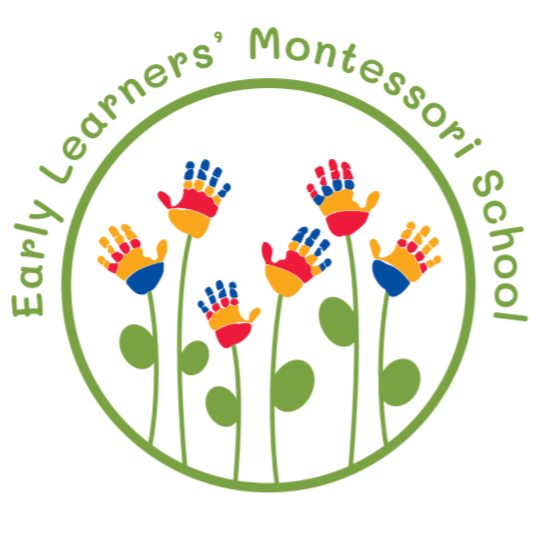“Children must be taught how to think, not what to think.”
~ Margaret Mead ~
Preschool / Casa program (2.5 years - 6 years)
Early Learners’ Montessori School Preschool / Casa Program offers children activities that build practical life skills, determination, and understanding. The program is directed towards children who have graduated from our Toddler / Pre casa program or who are between the ages of 2.5-6 years.
Early Learners’ Montessori offers a prepared Montessori environment to help children hone in on their Practical life, Sensorial, Mathematics and Language skills through engaging hands-on activities, arts and crafts, French and Music. Our Montessori Preschool Casa Program curriculum goes beyond reading, writing, math and science: we prepare children for life. With our “whole child” approach, our early education goal is to help each child develop a love of learning - with equal emphasis on social, emotional, physical, spiritual, and cognitive growth.
Practical life
We build the foundations of life skills through this area and it is the foundation of all other areas in the classroom. Work in this area builds a strong foundation in concentration, coordination, independence and order, which in turn sets up the children up for success in all areas both in and out of the classroom.
The Preschool / Casa program aims at:
Self-care: buttoning, ziping, combing, tying, children are encouraged to dress themselves.
Care for the environment: cleaning, sweeping, care of plants, setting a table.
Grace,Courtesy and social skills: greeting, accepting, apologizing, serving, thanking
Gross motor skills: balancing, walking with objects
Sensorial
Early Learners’ Montessori preschool/casa program aims to train and refine the senses of children to better observe and receive information from the world around them. Sensory learning develops all seven senses of a child: tactile (touch), visual (sight), auditory (hearing), gustatory (taste), olfactory (smell), vestibular (balance/movement), and proprioceptive (body awareness in space). Sensorial materials enable the child to clarify, classify and comprehend their world. It is also the beginning of scientific vocabulary; to describe and compare qualities of objects.
Mathematics
Children naturally have mathematical minds. They have the capacity to reason, calculate and estimate. They are intensely conscious of quantity. The concrete Montessori mathematical materials allow these sensorial explorers to begin their mathematical journey from the concrete to the abstract, internalizing concepts of numbers, symbols, sequences, operations of the decimal system and memorization of basic facts.
Language
Your child explores verbal expression, builds their vocabulary, and grows their comprehension of language. Through multifaceted storytelling, they learn to love literature and stories, which is their greatest motivator for learning to read. Young children start with foundational skills in pre reading, sensitizing their abilities to visually discriminate the fine differences of letters, and prewriting, building hand muscles and developing a pincer grip.
Materials related to Arts & Crafts, Science and Culture are a part of the prepared environment and are integrated in the day-to-day activities of the children. Science and Culture are all around us, Montessori education permits a child to view Science and Culture as natural parts of the physical world.
Areas of Focus for Early Learners’ Montessori School’s Preschool/Casa Program:
Program Highlights
Sensorial activities, sorting, classifying, grading, development of early math skills
Social skills and cooperation, chores and responsibilities, collaboration, manners, kindness
Language development and vocabulary enrichment, communication and early literacy skills
Fine and gross motor skill development, control and coordination of movement, body awareness
Concentration and focus developed through joyful exploration with engaging and stimulating learning materials, lessons and activities
Areas Of Growth
Growing independence, strong will and self-awareness
Development of physical coordination, fine and large motor skills
Cognitive development fuelled by new found independence, exploration and curiosity
Advanced language and verbal skills, enriched vocabulary, self expression
Social emotional awareness, greater self- regulation and impulse control
Self care, practical life skills and supporting independence (ie. dressing oneself, toilet learning)
Learning by doing, using all senses to explore the world
Confidence, kindness, and grace and courtesy

